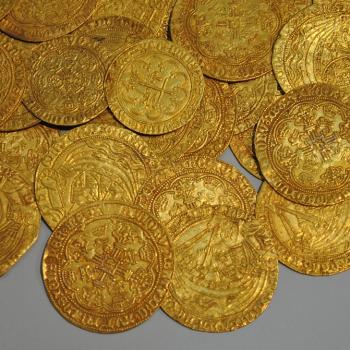
I grew up in a Fundamentalist church. By definition, this church was more conservative than most. It was also nondenominational – meaning that it was completely separate from a larger church hierarchy. Many of the Christian issues of the 90’s and 00’s were not a real problem. It was up to the pastor to preach and teach what he thought was right. Naturally, a single voice and opinion led to narrow views of the Christian faith.
The idea of women in leadership was unthinkable. I wouldn’t say this church was as deep as some other churches, but still very conservative. Women had a specific role in life and in the church solely because they were women. Men of course had their own roles, but it wasn’t preached on nearly as much. After all, Paul has way more to say about women than men.
Fast forward ten years and the church has a new pastor. While still conservative, the Fundamentalist dogma was not as severe. When my wife and I left the church, I wanted to find a woman pastor. She grew up conservative and was uneasy with the idea, but she went along with me to a few different services. We went to a conference in 2019 that changed her mind completely. We saw a woman preach with authority and power. Since then, we’ve loved sitting under a woman pastor. But why?
Women in the Church
Women have not always had a secondary role in the Church. The Gospels tell us that Mary Magdalene was the first to see the risen Jesus and tell the Apostles. She is known as “The Apostle to the Apostles” by Thomas Aquinas in the 13th century. There are other women in the Christian story that play major roles, including Mary the mother of Jesus, Phoebe, Priscilla, and Junia. It seems that the first Church valued women in all roles of the Fellowship.
The Eastern Orthodox Church used women in the sacrament of baptism in the Medieval Period. The Roman Catholic Church has many venerated women throughout the history of the church as well. It wasn’t until the Middle Ages that the ordination of women started to become restricted. As the social norms of Europe moved further patriarchal, the Church as a whole adopted a more complementarian view of women in the Church. Their voices were muted and Paul was interpreted to be instructional in all areas of life and the Church.
The 19th and 20th centuries saw a revival in the ordination of women. While Quakers were early adopters (ordaining women in the 17th century) most mainline Protestant denominations were hesitant. Anglican, Episcopal, and Lutheran Churches began ordaining women in the late 1800’s, while other Protestant denominations have followed suit.
Why Search for a Woman?
I was tired of reading men. My bookshelves are filled with men from the last 2000 years talk about God. I have been shaped by these thinkers and theologians. However, I realized that I was stuck in a perspective. I wanted to try to see Jesus through a different lens. This shouldn’t be a crazy idea – I try to read authors that I disagree with. My goal is to get the most charitable perspective.
Our perspective is a unique quality to ourselves. Because no two people are the same, each difference alters the way we look at the world. I have read and learned from great men, and I worked to find minority voices in these spaces. I came to realize that I needed to do the same with women thinkers. They offer unique life experiences that I’ll never know.
This is critical because a new lens will highlight new parts of our Scripture. If we believe that the Bible is inspired, then we ought to accept that interpretation will somehow be illuminated by God. What I discovered from reading and listening to women is that they read stories so much more different that I would ever read them. I couldn’t relate to Hagar, Ruth, or Mary on my own because I’ve never had those experiences. What women can offer (and what anyone with a different background can offer) is a new way to read the Scriptures. The Spirit can illuminate a new part of the Bible to reveal a more vivid rainbow of meaning.
What Now?
August 26th is Women’s Equality Day. If you’re on the fence about ordaining women for leadership, find a church with a woman minister and try it out. Visit for a few weeks and see what it’s like. You may be surprised to find it unique and challenging in ways you’d never expect!













